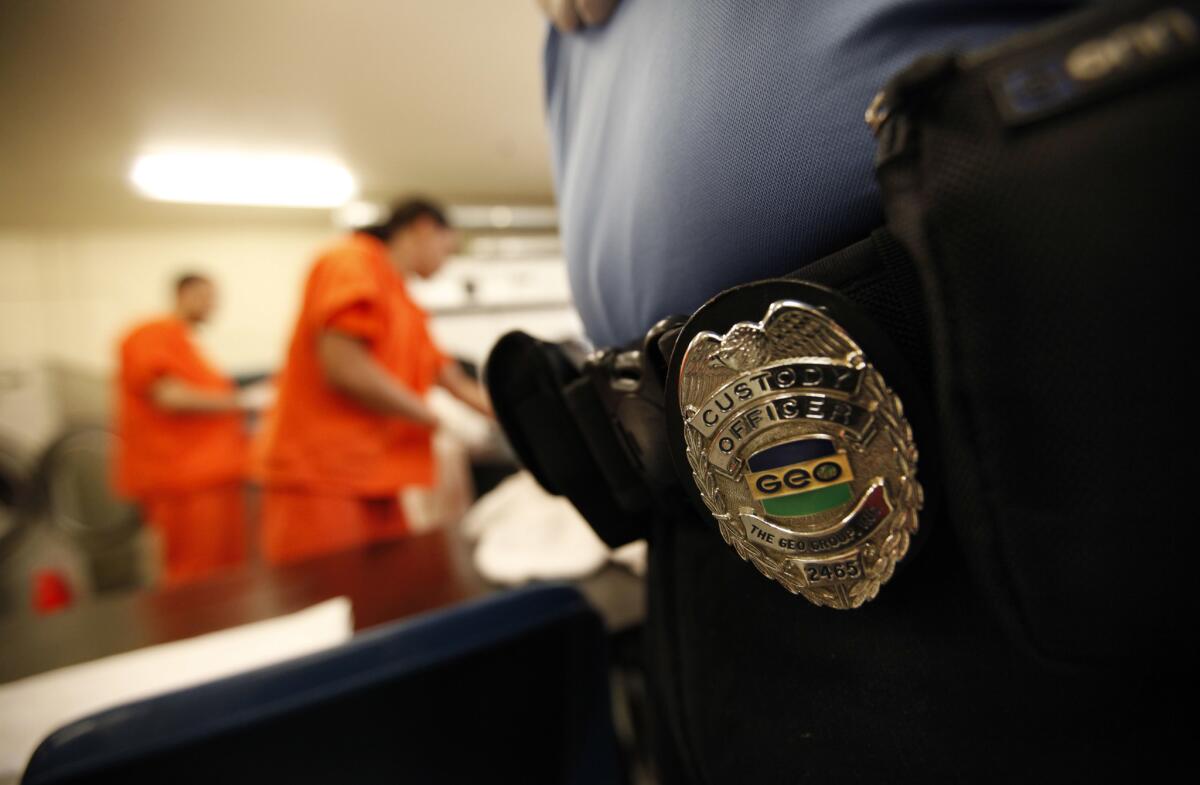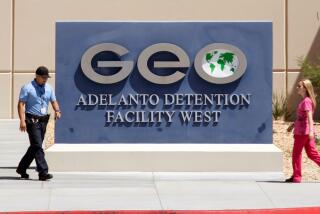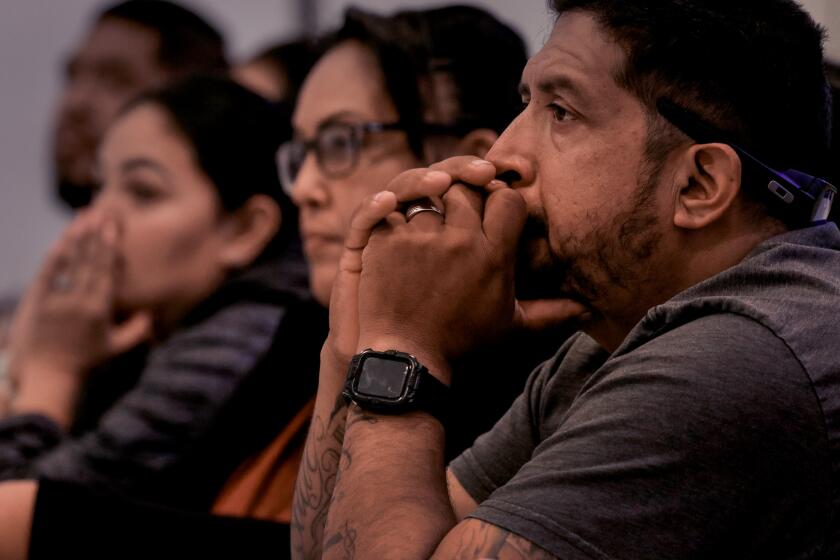California settlement limits ICE from re-detaining immigrants freed because of COVID

WASHINGTON — Immigration authorities must preserve coronavirus safety measures that allow for social distancing and vaccination mandates for staff and detainees at two California detention facilities, according to a class-action lawsuit settlement reached Thursday.
The settlement also limits the authority of U.S. Immigration and Customs Enforcement to re-detain hundreds of immigrants who were released as a result of the lawsuit. The American Civil Liberties Union and other groups filed the lawsuit in April 2020, in the early days of the COVID-19 pandemic, to challenge unsafe conditions at the Mesa Verde ICE Processing Facility in Bakersfield and the Yuba County Jail, north of Sacramento.
“When we filed this lawsuit, ICE had put our clients and communities at risk by detaining as many people as possible in filthy, crowded dorms and cells, creating a tinderbox for COVID-19,” Bree Bernwanger, of the Lawyers’ Committee for Civil Rights of the San Francisco Bay Area, said in a statement.
As the coronavirus spread, advocates filed similar lawsuits for other detention facilities around the country.
The settlement comes as coronavirus infections in detention centers have surged since December to 3,129 — nearly 15% of the total detained population — as of Wednesday. Eleven people in ICE custody have died of COVID-19, according to the agency.
Two medical advisors for the Department of Homeland Security this week denounced the “slow and inconsistent” efforts to control the spread of the virus in detention facilities. In a whistleblower letter Wednesday first reported by CBS News, physicians Scott Allen and Josiah Rich urged Homeland Security Secretary Alejandro N. Mayorkas to expand access to COVID-19 vaccines and approved treatment medications, as well as to ensure detainees have effective protective equipment, such as N95 masks.
The population at the two California facilities collectively dropped from 462 to 62 during the course of the litigation, lawyers said. The settlement agreement prevents around 250 immigrants who were released because of health vulnerabilities from being detained again unless they pose a threat to public safety, national security or are considered a flight risk.
It also establishes three more years of protections for those in custody, including population limits to allow for social distancing, testing, vaccination mandates and the continued release of vulnerable people.
At the same time, advocates are urging California leaders to stop transfers from state prisons and jails to ICE custody and exercise public health oversight.
Documents uncovered during litigation showed that ICE and the private prison contractor GEO Group deliberately limited coronavirus testing while there was an outbreak at the Bakersfield facility because they believed it would be too difficult to quarantine those who tested positive.
In a searing response, federal Judge Vincent Chhabria in San Francisco called the conduct of officials in charge appalling and said ICE had “lost the right to be trusted.”
ICE declined to comment. GEO Group did not respond to a request for comment on the settlement.
On Thursday, a federal judge in San Francisco issued a searing ruling, saying ICE has “responded to the health crisis in such a cavalier fashion” that it has “lost the right to be trusted.”
Plaintiff Brenda Ruiz Tovar said in a statement that she is grateful for the two years she has spent out of detention with her family. She said that after her release, she completed school and found work as a dental assistant.
“When COVID hit, I was terrified because the government was crowding so many of us together in such a dangerous place and not doing anything at all to protect us from the virus,” Ruiz Tovar said.
More to Read
Sign up for Essential California
The most important California stories and recommendations in your inbox every morning.
You may occasionally receive promotional content from the Los Angeles Times.











